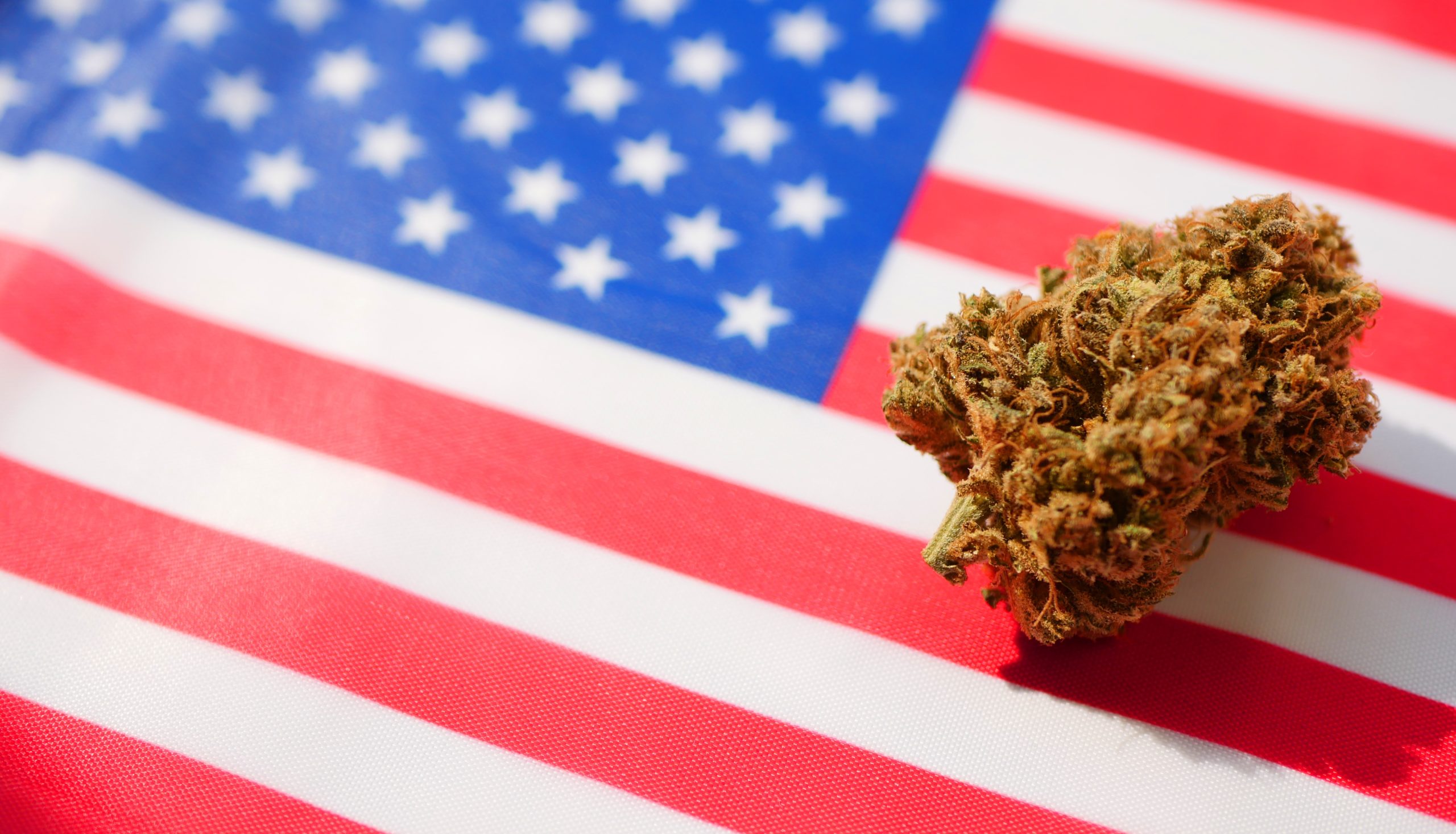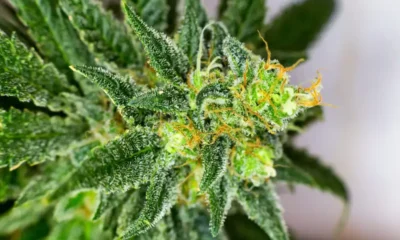Connect with us
Published
1 year agoon

Following last year’s election season, nearly half of Americans live in states with legal adult-use cannabis (or 155 million Americans). But how does the United States view adult-use cannabis legalization as a whole? One new survey conducted by Data for Progress confirms that a majority of Americans, 65%, are here for the cannabis wave, while 30% oppose legalization.
Data for Progress surveyed 1,228 likely voters in December 2022 to gauge their opinions on cannabis legalization, also asking about the enactment of social equity measures.
“We find that voters overwhelmingly support the legalization of recreational marijuana by the U.S. government,” Data for Progress said in a statement about the results. “We also find support among voters for the U.S. government to pass both policy measures if it were to legalize recreational marijuana.”
Respondents were first informed what the legalization of adult use cannabis entails and then asked whether or not they supported or opposed federal legalization, with the options “strongly support,” “somewhat support,” “somewhat oppose,” “strongly oppose” and “don’t know.”
Democrats were more supportive overall, with 75% voicing their support for federal cannabis legalization and 20% opposed. Independent/third party voters didn’t straggle far behind, with 67% in favor of federal cannabis legalization; twenty-seven percent were opposed. Even Republican respondents narrowly voiced majority support for federal legalization, a total of 52% supporting the move for federal cannabis legalization, though 45% were opposed.
The survey then asked voters about their support or opposition to equitable policy measures. First, respondents were asked about federal legislation granting licenses to individuals affected by cannabis prohibition. A total of 620 likely voters were surveyed for this question.
Data for Progress used a policy measure in New York’s Marijuana Regulation and Taxation Act as the example. Respondents were informed that the measure mandates that the first 100-200 licenses for opening dispensaries would be reserved for individuals and communities affected by cannabis prohibition.
Among all likely voters, 57% supported such legislation, while 34% were opposed. Party affiliation had a similar pattern as federal legalization, with Democrats showing the most support at 69% and the least opposition at 22%. Independent and third party voters voiced overall support of the policy, at 59% in favor and 28% opposed. Republicans, however, were mostly opposed to legislation granting those affected by cannabis prohibition licenses to enter the industry—52% were opposed, while 43% supported the policy.
Voters were asked about a second policy, also modeled after New York, that would divert cannabis revenue into a community grant fund. Respondents were informed that the measure could divert 40% of cannabis revenue collected to a community grant fund, aimed to help fund community-based initiative programs.
This fund would allow local nonprofit organizations and governments to apply for funding to support community-based initiative programs, such as job placement services, skill services, substance use treatment programs and financial literacy courses. For this inquiry, 606 likely voters were surveyed.
This equity measure had a bit more support overall and majority support among all political parties surveyed. Among all likely voters, 65% supported a measure diverting cannabis revenue into a community grant fund, while 28% were opposed. Democrats, again, were the most supportive of this type of measure, 76%, while 18% were opposed. Independent and third party voters followed, with 70% showing support and 22% opposition. Republicans narrowly voiced majority support for the measure, with 51% in favor and 41% opposed.
In the conclusion of its statement, Data for Progress said the results indicate that voters are ready for the U.S. government to legalize recreational cannabis, along with equitable policies.
“It is time for the U.S. government to right its previous wrongs from the failed ‘War on Drugs’ and legalize recreational marijuana while giving back to those communities who were heavily affected,” the statement concluded.


Is Your Tesla Self-Driving Car Narcing You Out?


Psychedelics Offer Long-Term Improvement in Sexual Functioning, Enjoyment


March Marks New High for Cannabis Sales in Michigan


Illinois Lawmakers Seek Ban on Intoxicating Hemp Products


Majority of Florida Voters Support Cannabis Legalization, Not Enough To Pass Measure


VP Kamala Harris’ Stepdaughter Debuts Textile Exhibition at NYC Cannabis Store
